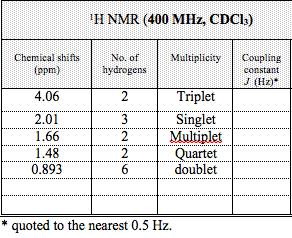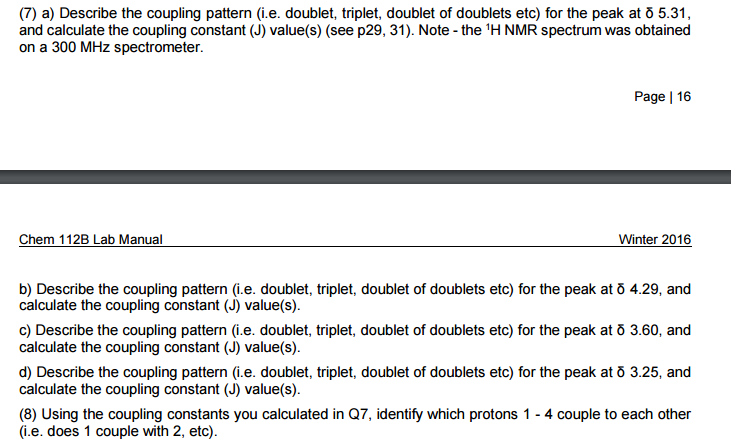

For heteronuclear and multidimensional NMR experiments, sophisticated and complex electronic circuitry is required 17, 18, which limits the more widespread application and implementation of (microcoil) NMR spectroscopy.Ī classical NMR front end consists of a transmit/receive coil enveloping the sample and a tuning/matching circuit driven through a Z 0 (usually 50 Ω) coaxial cable 19, 20.

For multi-(frequency) channel probes, this implies multiple coils and/or multi-dip tuning circuits, making the probes very complex.

Using non-tuned coils for NMR spectroscopy has been considered in the 60s of last century 21, 22 however, it has remained unexploited in the following decades of developments of ever higher field spectrometers. #How to find coupling constants mestrenova portable#ĭuring the last decade, the ‘non-resonant’ NMR concept has been picked-up again, and shown useful for low-frequency and/or low-resolution NMR applications, already corroborating the validity of this approach 23, 24, 25, 26.#How to find coupling constants mestrenova full#.


 0 kommentar(er)
0 kommentar(er)
